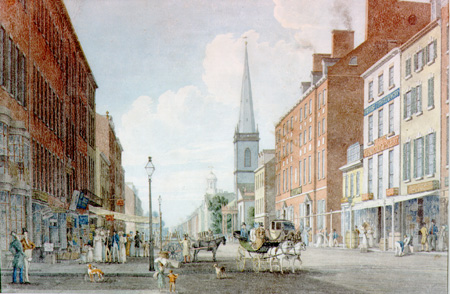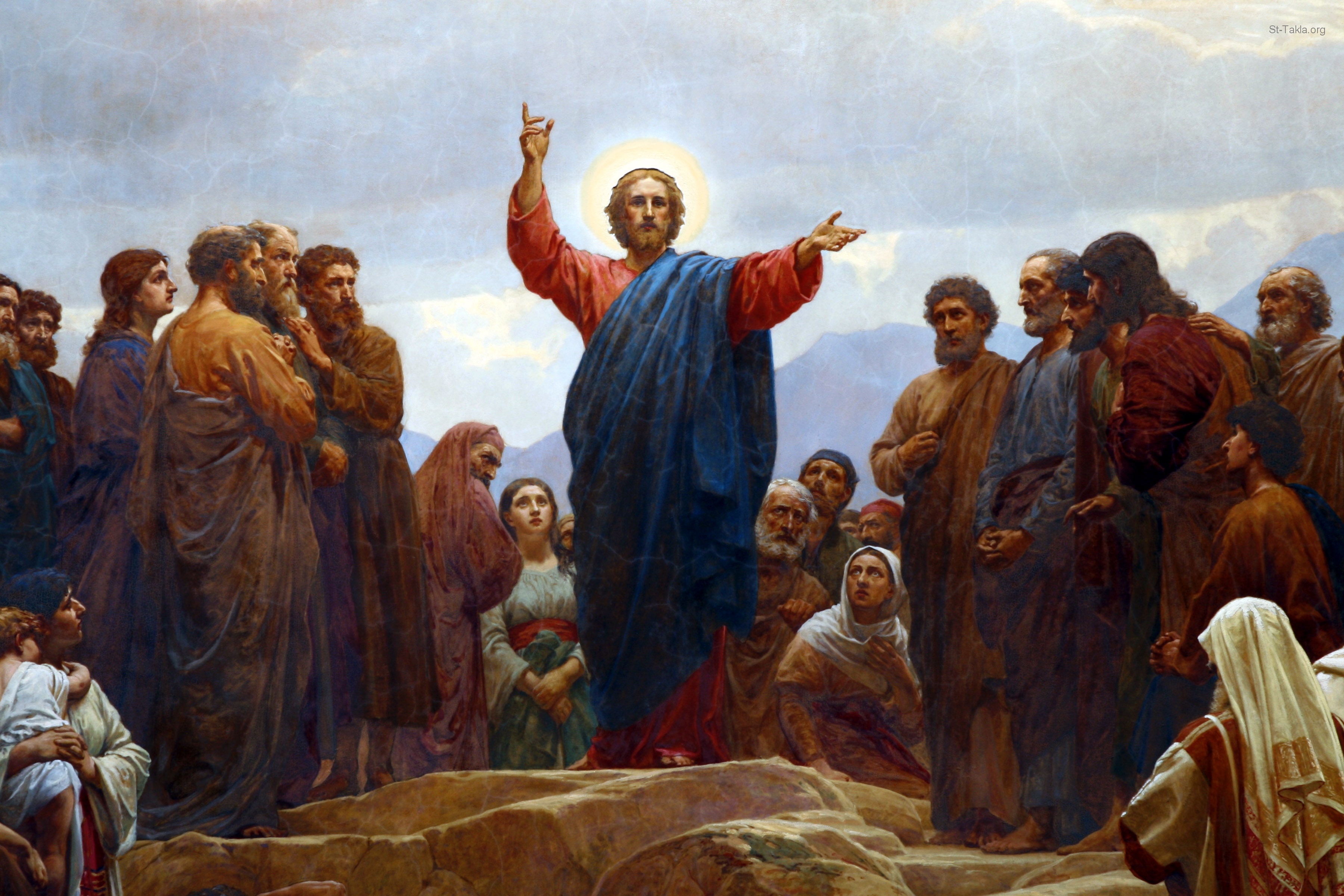Joseph Smith, Jr., founded a religion and a Church that have survived and thrived to the present day. He constantly taught that he was a prophet, sent from God, and millions of faithful followers have taken him at his word for the last 180+ years. But what did he teach?
I have in my possession, a fun little
book (little being 730 pages long) called the “Encyclopedia of
Joseph Smith's Teachings.” As I have read through it, I have
realized that there are very many teachings of Joseph Smith's that
are remarkably well-said, thought-provoking, and interesting.
Unfortunately, most Latter-day Saints – let alone others seeking to
learn more about Joseph Smith and Mormonism – have never heard many
of these gems, and so cannot appreciate the startling breadth of wit,
wisdom and power in the words that Joseph spoke.
With this in mind, I have gathered some
of the best ones, on a variety of subjects. I have tried to select
passages from my book that are especially applicable,
thought-provoking, little-known, or eloquently worded. Obviously I
cannot include all of Joseph's best words, but I hope that what
little I have included will interest, stimulate, provoke, and/or
instruct all who read them.
(All quotations, unless indicated
otherwise, are from the “Encyclopedia of Joseph Smith's Teachings,”
ed. Larry E. Dahl and Donald Q. Cannon, published in 2000 by Deseret
Book.)
1. On Technological Advance:
 |
| When Joseph Smith visited New York, it caused him to reflect on mankind's technological advancement. |
“This day I have
been walking through the most splendid part of the City of New York.
The buildings are truly great and wonderful to the astonishing of
every beholder, and the language of my heart is like this: Can the
great God of all the earth, maker of all things magnificent and
splendid, be displeased with man for all these great inventions
sought out by them? My answer is no, it cannot be, seeing these works
are calculated to make men comfortable, wise, and happy; therefore,
not for the works can the Lord be displeased, only against man is the
anger of the Lord kindled because they give Him not the glory.”
(Letter to his wife, Emma Smith, from New York City, October 13,
1832.)
2. On Proper Use of
Influence:
“It is our duty
to concentrate all our influence to make popular that which is sound
and good, and unpopular that which is unsound.” (Address in Nauvoo,
Illinois, February 21, 1843)
3. On Teaching
God's Word (Missionary Work):
“Preach
short sermons, make short prayers, and deliver your sermons with a
prayerful heart.” (Contained in Family of George A. Smith).
“No man can preach the Gospel without the Holy Ghost. ... After all has been said, the greatest and most important duty is to preach the Gospel.” (Address in Kirtland, Ohio, April 6, 1837.)
4. On Jesus Christ:
In response to the frequently-asked
question, “What are the fundamental principles of your religion?,” Smith stated that “the fundamental principles of our religion
are the testimony of the Apostles and Prophets concerning Jesus
Christ: that He died, was buried, and rose again on the third day,
and ascended into heaven; and all other things which pertain to our
religion are only appendages to it. But in connection with these, we
believe in the gift of the Holy Ghost, the power of faith, the
enjoyment of the spiritual gifts according to the will of God, the
restoration of the house of Israel, and the final triumph of truth.”
(Published in Missouri, May 8, 1838.)
 |
| Joseph Smith on Jesus: "He died, was buried, and rose again on the third day." |
“Who, among all the Saints in these
last days, can consider himself as good as our Lord? Who is as
perfect? Who is as pure? Who is as holy as He was? Are they to be
found? He never … broke a commandment or law of heaven – no
deceit was in His mouth … Where is one like Christ? He cannot be
found on earth.” (Letter from Ohio to various church members in
Missouri, dated January 22, 1834)
“Through the atonement [or,
sacrifice] of Christ and the resurrection and obedience in the
gospel, we shall again be conformed to the image of [God's] Son,
Jesus Christ. Then we shall have attained to the image, glory, and
character of God.” (Sunday address, July 9, 1843)
5. On Debt:
Jesse Crosby, a neighbor and follower of Smith's, recounted: “One day when the
Prophet carried to my house a sack of flour he had borrowed, my wife
remarked that he had returned more than he had received. He answered
that it should always be so; that anything borrowed should be
returned always with interest to the lender. 'Thus,' he said, 'the
borrower, if he be honest, is a slave to the lender.' (Reminisce of
Jesse Crosby, reported in “Stories from the Notebook of Martha
Cox,” LDS Church Archives.)
6. On Depression:
“When a man [or
woman] is borne down with trouble, when he is perplexed with care and
difficulty, if he can meet a smile instead of an argument or a murmur
– if he can meet with mildness, it will calm down his soul and
soothe his feelings; when the mind is going to despair, it needs a
solace of affection and kindness.” (Remarks to the Relief Society
(a women's service organization within the Church), April 28, 1842.)
7. On Being a Prophet:
“I was this
morning introduced to a man from the east. After hearing my name, he
remarked that I was nothing but a man, indicating by this expression,
that he had supposed that a person to whom the Lord should see fit to
reveal His will, must be something more than a man. He seemed to have
forgotten the saying that fell from the lips of St. James, that Elias
was a man subject to like passions as we are, yet he had such power
with God, that He, in answer to his prayers, shut the heavens that
they gave no rain for the space of three years and six months. …
Indeed, such is the darkness and ignorance of this generation, that
they should look upon it as incredible that a man should have any
[interaction] with his Maker.” (Joseph Smith's Journal, November 6,
1835)
 |
| Joseph Smith taught hundreds - perhaps thousands - of sermons throughout his life, to every imaginable kind of audience. |
“The
world always mistook false prophets for true ones, and those that
were sent of God, they considered to be false prophets, and thus they
killed, stoned, punished an imprisoned the true prophets, and these
had to hide themselves 'in deserts and dens, and caves of the
earth.'” (Editorial in Times and Seasons,
a Mormon newspaper printed in Illinois, April 1, 1842.)
8. On Learning:
“Whatever principle of intelligence we attain unto in
this life, it will rise with us in the resurrection.
And if a person gains more knowledge and intelligence in
this life through his diligence and obedience than another,
he will have so much the advantage in the world to come.”
(Doctrine and Covenants Section 130, Verses 18 and 19.)
“A man is saved
no faster than he gets knowledge.” (Sunday address, April 10,
1842.)
One last thing, before you go: I'm conducting a survey of who reads this blog, and their relationship with Mormonism. It'll take you about two seconds to look to the right side of your screen and answer it. It would help me and Samantha get a much better feel for who is reading our blog consistently. Thanks!
One last thing, before you go: I'm conducting a survey of who reads this blog, and their relationship with Mormonism. It'll take you about two seconds to look to the right side of your screen and answer it. It would help me and Samantha get a much better feel for who is reading our blog consistently. Thanks!
I just wanted to add a comment here to mention thanks for you very nice ideas.Private Tutor in Wellington I appreciate when I see well written material.
ReplyDelete